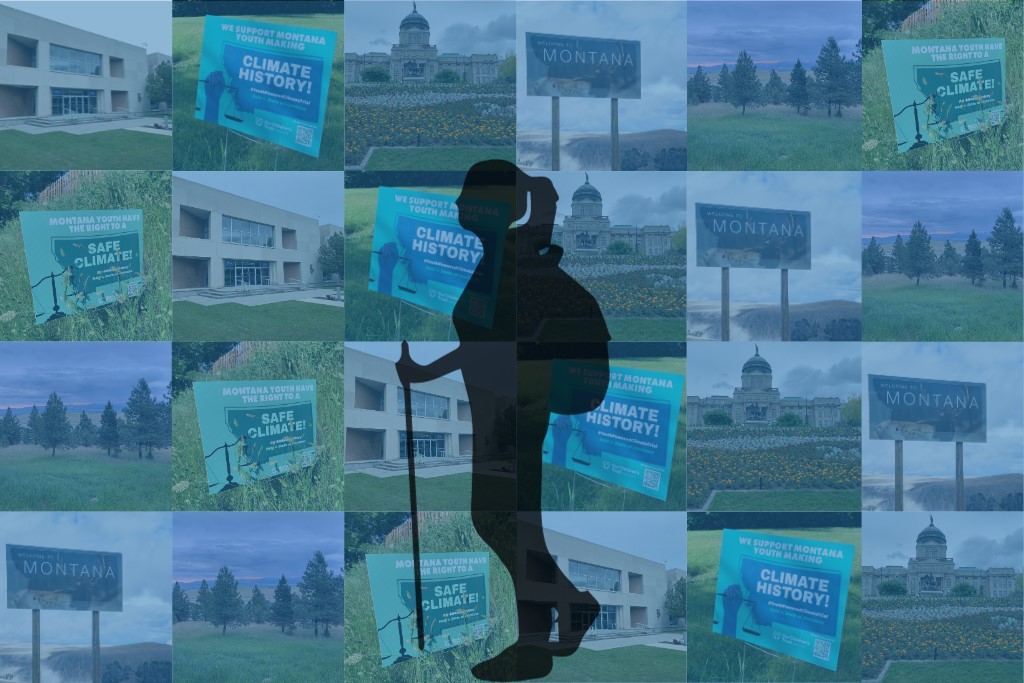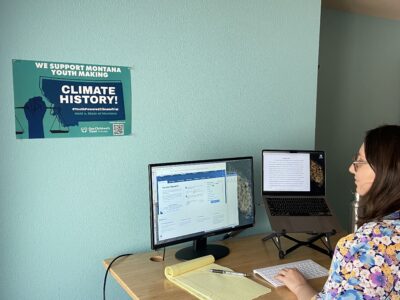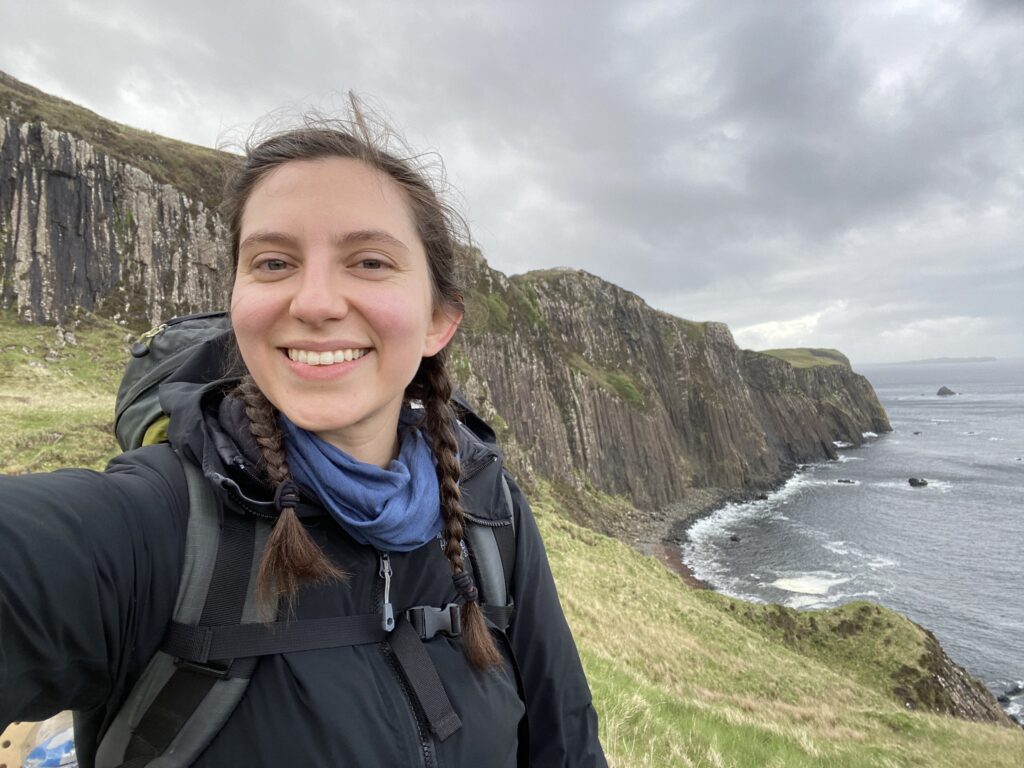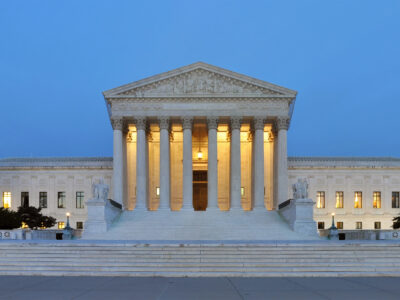A Summer Job, Record Heat, Climate Hope
Guest contributor Mollie Cueva-Dabkoski reflects on working as a summer law intern at Our Children’s Trust on the Held v. Montana case.

It’s been three months now since 16 young plaintiffs suing the state of Montana for climate harms piled into a Helena courtroom so small that the attorneys worried whether everyone would fit. (They did.)
And it’s been one month since the Montana First District Court determined that the state of Montana had indeed violated Montana youth’s right to a “clean and healthful environment” by collaborating with the fossil fuel industry. But the historic decision is still reverberating around the country, and I am still reflecting on it. Held v. Montana was monumental for many reasons: it was the first-ever constitutional climate trial in the U.S.; it represents a new and growing movement to assert and enforce future generations’ right to a habitable planet; and it allowed me to observe firsthand—and assist on— cutting-edge climate litigation. This summer I interned at Our Children’s Trust (OCT), the nonprofit representing those 16 youth plaintiffs.
As a young person and a UCLA Law student, the importance of the Held trial is not lost on me. This summer was the hottest on record and the season was rife with dire signs that the atmosphere’s dangerous levels of carbon dioxide are wreaking havoc on the environment and communities. In June, as the Held case was going to trial, a thick haze of smoke from Canadian wildfires blanketed cities as far away as New York and Washington D.C. In July, the water in the Florida Keys skyrocketed to 101.19 °F. Unprecedented weather events have become the standard.
It is precisely the impacts from these severely changed weather systems that the Held plaintiffs cited as reasons for their initial complaint filed in 2020. The smoke-filled skies from near-constant summer wildfires forced Olivia, then 16 years old, to stay inside during the summer. Sisters Ruby and Lilian, then 11 and 9 years old, both members of the Crow Tribe of Montana, struggled to find ripe wild berries for syrup making because of the unpredictable weather. Badge, 12 years old at the time, struggled to fish for trout as high temperatures have shrunk their population. In a changed climate, life cannot proceed as usual. That’s something I contend with daily in my own life too since California entered a drought so many years ago now and the threat of wildfires has surged.
 As a summer law clerk with OCT, my job was to assist on the organization’s cases filed around the country with legal and factual research—a veritable smorgasbord of activities, including digging through archives, reviewing transcripts, careful reading of scientific literature, many, many hours spent analyzing court opinions, and countless days writing memos. “A summer of learning and writing,” is how I described it to my partner over dinner one night. And it is undeniable that some of my biggest lessons from this summer come from the Held case, both working on it and watching it unfold in real time.
As a summer law clerk with OCT, my job was to assist on the organization’s cases filed around the country with legal and factual research—a veritable smorgasbord of activities, including digging through archives, reviewing transcripts, careful reading of scientific literature, many, many hours spent analyzing court opinions, and countless days writing memos. “A summer of learning and writing,” is how I described it to my partner over dinner one night. And it is undeniable that some of my biggest lessons from this summer come from the Held case, both working on it and watching it unfold in real time.
At trial, the Montana attorney general’s office argued that the State of Montana is not responsible for the extreme weather events to befall the state, and the Held plaintiffs. The state contended that their actions are not responsible for global climate change. It reminded me of the unsurprising, but still disappointing finger pointing between high carbon emitting-countries while negotiating climate responsibilities and greenhouse gas emission caps at COP27. But in the end, the Montana court rejected that argument, relying on plentiful evidence that extractive projects approved by the state contribute to the plaintiffs’ health concerns, stress, eclipsed recreational activities, violating Montana’s constitution, which outlines a right to “a clean and healthful environment in Montana for present and future generations.”
I watched the entire trial, transfixed by the plaintiffs’ prowess on the stand, and their eloquence in describing the climate anxiety so familiar to me. Like many other Americans, I watched remotely on my computer. I was familiar with the legal arguments and scientific evidence on paper before the trial. Seeing them come to life in court was powerful. Climate scientists of different specialties outlined in detail the felt impacts of anthropogenic climate change in Montana—glacier retreat in Glacier National Park, reduced freshwater reserves, longer, hotter summers, and erratic flooding—and the cause: disastrously high levels of CO2 released by Montana, and other countries and states, into the atmosphere, in turn trapping solar heat in earth’s atmosphere, and warming the planet. It was, in effect, a series of complex science lessons made accessible, and consumable to a legal and lay audience. In her judicial opinion, Judge Kathy Seeley affirmed that this science communication was successful, writing, “Every additional ton of [greenhouse gas] emissions exacerbates Plaintiffs’ injuries and risks locking in irreversible climate injuries… Montana’s [greenhouse gas] contributions are not de minimis but are nationally and globally significant. Montana’s GHG emissions cause and contribute to climate change.” I felt giddy when I read her words.

Regardless of what happens on appeal, I believe the Held decision is a long-term victory. We live in a world that markets individual action as the singular solution to climate change, instead of corporate and governmental accountability, where multinational companies and the governments that endorse them are largely responsible for the excessive carbon in our atmosphere. But the Held decision disrupts this narrative, evidencing that where governments approve carbon-emitting projects without concern for their impact, these actions compromise young peoples’ futures. The U.N. Committee on the Rights of the Child agrees.
What has become clear in the last month is that this case has won in the court of public opinion. The immense media coverage of the outcome has spread the news of the decision far and wide. Everyone has been talking about Held. My mom actually knows what I did all summer. And so do my friends. And in so many of my conversations on the topic, people are ecstatic about the result—a bright spot in a sea of grim climate news. Interestingly, many of the people I’ve talked about the decision with seem affirmed by the outcome, even where they were surprised at the novel decision. And I think that is because when a case gets it right, it resonates with people so emphatically, so instantly. Held declares a moral truism that precedes the legal system: to care for and leave the natural world as we found it—to root ourselves in the physical, the planetary, and all we know, and preserve it with all our will. As a soon-to-be young environmental attorney, I will remind myself of this lesson, of how and why Held got it right, because climate change continues at a clip, and there is much work to do.
Mollie Cueva-Dabkoski is a UCLA Law student (2L).
Reader Comments
One Reply to “A Summer Job, Record Heat, Climate Hope”
Comments are closed.






Excellent, important work. Thank you!